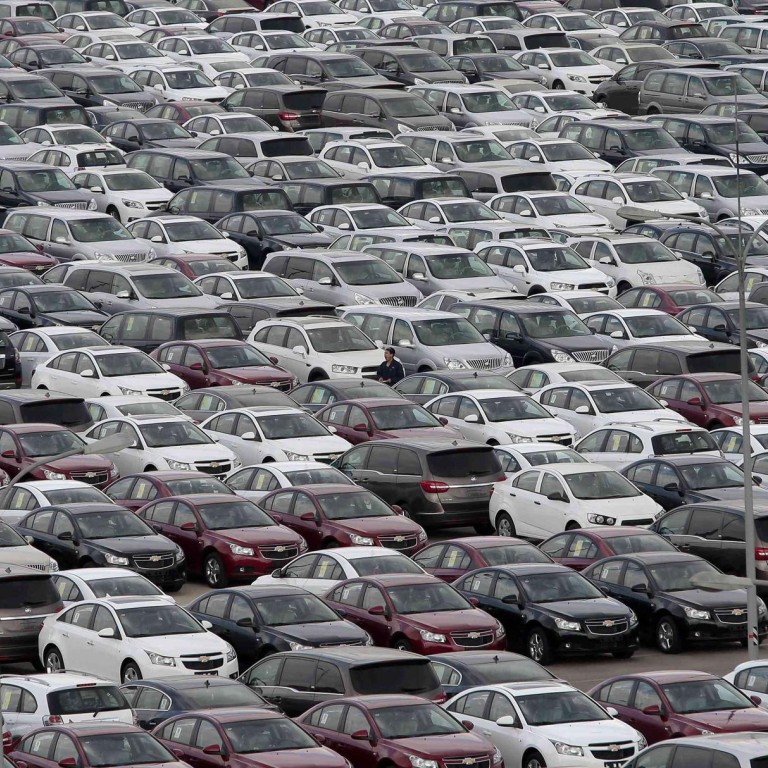
EU firms pessimistic over China growth prospects, says survey
Economic slowdown and tougher operating conditions, including 'unfair' competition from SOEs, contribute to shift in business sentiment
Nearly half of European companies believe that the "golden age" for multinationals in China is over, the European Chamber's annual survey on business confidence found.

"A new sober reality is developing. An abiding sense of pessimism for future performance is setting in, which is leading many to question whether the good times have ended," the executive summary of the report said.
Growth in the world's second-largest economy eased to an 18-month low in the first quarter, up 7.4 per cent from a year earlier, compared with the 7.7 per cent growth in the fourth quarter of last year.
"The Chinese economic slowdown and tougher business conditions are starting to bite and financial performances are getting much tighter," Joerg Wuttke, president of the chamber, told reporters.
President Xi Jinping recently urged people to adapt to the "new normal" of economic growth, suggesting the era of double-digit growth fuelled by cheap labour and massive credit supply is over for good.
The share of European companies reporting year-on-year increases in revenues declined for at least three years in a row, dropping to 59 per cent in 2013 from 78 per cent in 2010, according to the survey.
For the first time in the history of the survey, more companies noted that their profit margins in China were lower than their global averages, the report said.
Business confidence dropped because lingering regulatory hurdles put companies at a disadvantage, especially compared with China's privileged state-owned enterprises, the report said.
The Shanghai free trade zone was a step towards opening up the Chinese market and creating a level playing field, said Wuttke. But only half of companies are confident Beijing will begin implementation of a series of economic and social reforms in the next one to two years, he said.
Despite Beijing's commitment to liberalise the market further, the SOEs were "perceived to have increased their strengths" relative to their competitors over the last year in areas such as government relations, access to subsidies and tax incentives, and access to finance, the report said.
The chamber estimated that market access and regulatory barriers may have caused the chamber's member companies to miss out on €21.3 billion (HK$229 billion) in revenue in the financial year of 2013, equivalent of 15 per cent of the EU's annual exports to China.
While the mainland market remains critical for these companies' global revenue growth, fewer companies identified China as their top investment destination, Wuttke said. About 57 per cent of those surveyed stated that they plan to expand their China operations.
That was down considerably from 86 per cent who had expansion plans in the previous year. However, he said the sentiment varied significantly between industry sectors.
Chemicals and vehicle companies showed stronger willingness to expand, while only 24 per cent of those in the legal industry plan to expand their business on the mainland, according to the report.

